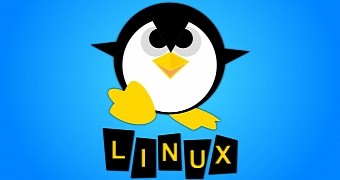Turin is the next large city that plans to step away from Windows and fully embrace Linux, as the local municipality is finally ready to embark on a long process that would bring the open-source platform on all their computers.
Our resident Linux expert Silviu Stahie already reported in August that the city of Turin was planning to ditch all Microsoft products in the favor of Linux, but according to a new report that has come out today, the city has moved one step closer to the beginning of the transition.
And things are developing really fast in Turin’s case, so authorities might actually speed up their transition to Linux efforts because most computers are still on Windows XP.
Microsoft stopped releasing updates for Windows XP in April this year, so all computers running it right now could become vulnerable to attacks if an unpatched flaw is found.
The Linux transition is planned since 2012
Councilwoman Fosca Nomis of the Democratic Party told ZDNet in a statement that stepping away from Microsoft software was a decision that local authorities had been working on since two years ago, but due to the economic concerns, the beginning of the transition was delayed.
"We've been discussing this since about two years ago. The project was temporarily put aside due to economic concerns — it probably would have been too costly switching from XP while we still had valid and paid licences running," she said.
Of course, everybody’s looking at Munich’s case, as the German city decided in 2004 to give up on Microsoft software entirely and embrace open-source alternatives.
"Turin, of course, is not the first Italian municipality to switch to Linux," Nomis said, "but it's perhaps one of the biggest so far, and we believe it could set an example for other cities to follow, starting with the smallest towns surrounding the Piedmontese capital, which will be invited to adopt the model used by the [region's] main administrative centre."
Really significant savings after moving to Linux
At this point, the city operates a number of 8,300 PCs, and experts estimate that without having to purchase Microsoft Windows and Office licenses, the transition to Linux would generate a saving of approximately 300 euros ($390) for each computer.
"If we abandon proprietary software we will save €6 million ($8 million) in five years. The initial investment is low but, once installed programs and taught employees how to use them, the system will go ahead on its own feet, allowing the city to lower the cost even more," Director of Information Systems Sandro Golzio said earlier this year.
At first glance, there’s no doubt that open-source software can indeed bring significant changes in terms of licensing costs, but in the end, the amount of money one would have to spend could be bigger than in the case of Windows.
It all comes down to the post-acquisition costs, as companies might need to pay professional staff to repair errors, train employees, and set up additional services. Everybody knows to work on Windows and use Office, but Linux is still an enigma for many folks out there.
A similar thing happened in Munich’s case as well, as German authorities are said to be looking into their Linux adoption figures in order to decide whether it’s worth staying on an open-source platform or not. Local sources said that staff indeed needed additional training and in the very first years productivity dropped significantly due to the differences between Windows and Linux.

 14 DAY TRIAL //
14 DAY TRIAL //